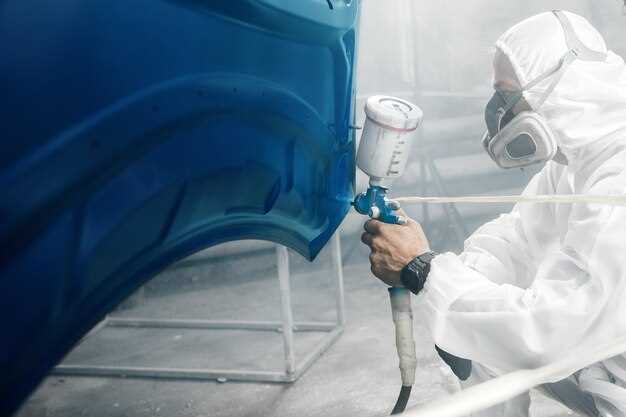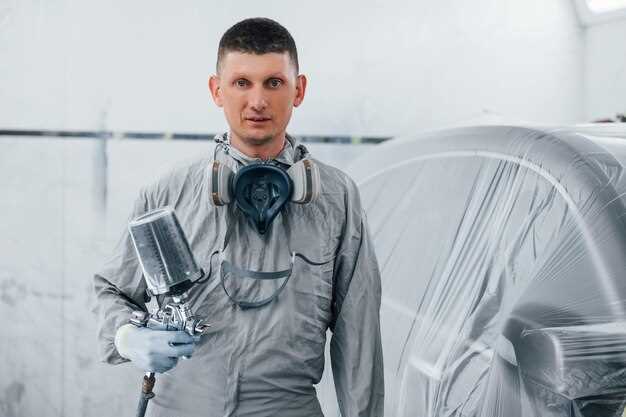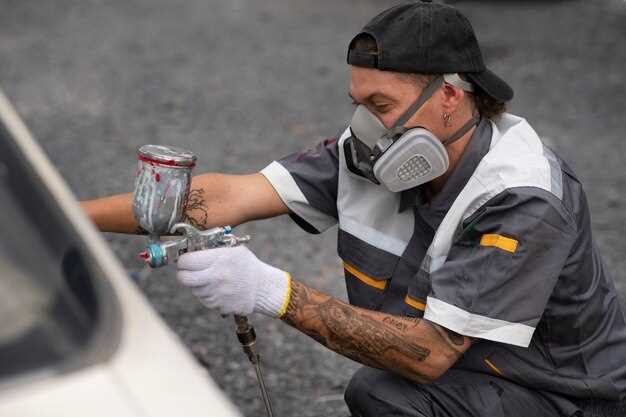
When it comes to refreshing the look of your vehicle, two main avenues emerge: DIY painting and hiring a pro. Each option has its own set of advantages and challenges, making the decision a nuanced one. Understanding the intricacies of both approaches can save you time, money, and frustration down the line.
DIY car painting offers a sense of fulfillment and creativity. By taking this path, car enthusiasts can customize their vehicle to align with personal tastes, all while exploring the painting process firsthand. However, it requires careful preparation, the right tools, and a significant time investment. Mistakes in application can lead to uneven coats and unsatisfactory results, making this approach a double-edged sword.
On the other hand, opting for a professional painter usually guarantees a high-quality finish and a beautiful, durable paint job. Experienced technicians have the expertise, equipment, and environmental controls necessary to achieve flawless results. Yet, this convenience comes at a cost, often making professional services significantly more expensive than a DIY effort. In exploring these two paths, you’ll need to weigh factors like budget, skill level, and the desired outcome to determine which option truly wins.
DIY vs Professional Car Painting: Which Option Wins?
When it comes to giving your car a fresh look, you have two main options: DIY painting or hiring a professional service. Each choice has its own set of advantages and disadvantages that can significantly influence the outcome of the project. Here’s a closer examination of both options.
DIY Car Painting

Choosing to paint your car yourself can be appealing for several reasons:
- Cost-Effective: DIY painting can save you a considerable amount of money compared to professional services, as you won’t be paying labor costs.
- Flexibility: You can work at your own pace and schedule, allowing for a more personal touch to your project.
- Satisfaction of Crafting: Successfully painting your car can provide a sense of accomplishment and pride in your handiwork.
However, it’s not without its challenges:
- Skill Level Required: Achieving a professional finish takes practice and skill, which may be lacking in many DIY enthusiasts.
- Equipment and Materials: Quality paint, tools, and safety equipment can be costly and may also require additional investment.
- Time-Consuming: DIY painting projects can take longer than anticipated, especially if you encounter issues along the way.
Professional Car Painting

On the other hand, opting for a professional painting service has its distinct advantages:
- Expertise: Professionals have the experience and skills needed to achieve high-quality results quickly and efficiently.
- Equipment: Most professional services have access to advanced equipment and materials that are difficult for a DIYer to procure.
- Time Savings: A professional service can complete the job in a fraction of the time it would take you to do it yourself.
Nonetheless, there are some downsides to consider:
- Cost: Professional services can be expensive, potentially straining your budget.
- Less Control: You may have to compromise on your vision, as the professionals will bring their own expertise and aesthetics into the project.
- Dependence on Appointment Availability: You may need to wait for an available time slot, which can delay your project.
Conclusion
Ultimately, the decision between DIY and professional car painting depends on your individual circumstances, including budget, skill level, and desired outcome. If you seek a cost-effective solution and are willing to invest the time and effort, DIY painting could be the way to go. However, if you want guaranteed quality and a reliable finish, opting for a professional service might be your best bet.
Understanding the Costs: DIY Paint vs. Professional Services
When considering a car repainting project, one of the primary factors to evaluate is the cost involved in DIY paint versus hiring professional services. Both options come with distinct financial implications that can significantly influence your decision.
Choosing to go the DIY route allows for potential savings on labor costs. A basic DIY paint job may only require purchasing materials such as paint, primer, clear coat, sandpaper, and masking tape, which can generally cost anywhere from $100 to $500 for a standard-sized car. However, it is crucial to note that while the initial material costs may appear lower, there may be hidden expenses such as specialty tools, additional paint for corrections, and the investment of your time.
On the other hand, professional painting services typically range from $1,000 to $5,000, depending on the quality of the paint job and the reputation of the auto body shop. This price often includes a thorough prep process, high-quality paint application, and a durable finish. While this is a significantly higher upfront cost, the result is usually a more seamless and aesthetically pleasing outcome that can enhance the resale value of the vehicle.
Ultimately, when weighing DIY paint against professional services, it is essential to consider not just the monetary cost but also the value of expertise and the potential cost of mistakes. DIY projects may save money but can also result in decreased durability and appearance. Alternatively, professional services may require a larger investment but often yield superior results and longevity, making them a worthwhile consideration for many car owners.
Evaluating Time and Skill Requirements for Car Painting Projects
When it comes to car painting, the decision between DIY and hiring a professional service hinges heavily on time and skill requirements. Each option presents distinct demands that can significantly impact the overall outcome of the project.
DIY Painting can appear attractive due to lower costs and the satisfaction of personal accomplishment. However, it requires a considerable investment of time. Researching the correct materials, preparing the workspace, and applying multiple layers of paint can extend the project timeline. Furthermore, achieving a flawless finish demands skill that many DIY enthusiasts may lack. Mistakes, such as improper application or inadequate surface preparation, can result in costly redo work or unsatisfactory results.
In contrast, hiring a professional for car painting ensures that the job is handled efficiently. Professionals come equipped with extensive experience and specialized tools, which not only streamline the painting process but also reduce the likelihood of errors. This expertise translates into faster turnaround times and superior quality outcomes. While the cost may be higher, the investment often pays dividends in performance and durability of the finish.
Ultimately, determining which route to take depends on personal skill levels and the time available for the project. Those with prior experience in car painting might find DIY a manageable and enjoyable challenge, while others may prefer the reliability and expertise that a professional service provides.
Assessing the Quality and Durability of DIY vs. Professional Finishes
When it comes to painting a car, both DIY and professional services offer distinct advantages and disadvantages that can significantly impact the final outcome. Assessing the quality and durability of finishes is essential for making an informed decision.
DIY Finishes: Many car enthusiasts opt for a DIY approach to save money and have artistic control over the color and finish. However, achieving a high-quality result requires meticulous preparation, proper materials, and the right techniques. For instance, if the surface is not properly sanded and primed, the paint may not adhere well, leading to peeling or chipping over time. The durability of DIY finishes often hinges on the products used; some paints offer limited longevity when compared to professional-grade options. Environmental factors, such as UV exposure and moisture, can also diminish the lifespan of a DIY paint job, making regular maintenance crucial.
Professional Finishes: Hiring a professional service typically guarantees a higher quality finish. Professionals have access to advanced equipment and paints that are specifically designed for automotive applications, which can significantly enhance color depth and durability. They also have the expertise to properly prepare the vehicle and apply multiple layers of paint, ensuring a smooth and even finish. Additionally, the use of protective coatings and sealants can further extend the lifespan of professional finishes. While this option tends to be more expensive than DIY, the benefits often include a longer-lasting and more aesthetically pleasing result.
In conclusion, while DIY projects can be fulfilling and cost-effective, they may not always meet the standards achieved by professional services. Assessing the quality and durability of the final finish ultimately depends on the skill level of the painter, the materials used, and the environmental conditions to which the paint will be exposed. For those seeking a perfect finish that lasts longer, professional car painting remains the best option.






